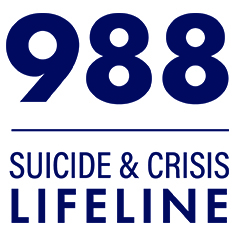Crisis Protocols
Download a text version of this module: Crisis Protocols
About This Module
Crisis protocols specific to suicide death, suicide attempt, and acute distress are essential because they help a college or university respond in an organized, timely, and compassionate way. Clear and consistent protocols that outline what to do and who to contact will also help minimize uncertainty and fear in members of the community.
Ideally, crisis protocols should cover these key components:
Responding to the acutely distressed or suicidal student
Guidance on how to identify whether a student is at risk for suicide and what to do for the student, even if help is refused.
Establishing an emergency contact notification procedure
Who should be notified (e.g., family member, relative) if a student is in crisis, and under what circumstances the campus should contact this person.
Addressing issues around voluntary and involuntary psychiatric hospitalization
Considerations for determining if hospitalization is in the best interests of the student.
Documenting encounters with the acutely distressed or suicidal student
Information that should be formally documented for each incident.
Developing post-crisis follow-up plans
Continuity of care for a student after a crisis, including what do if the student shows signs of distress again.
Addressing leave of absence and re-entry
Considerations for determining if a leave of absence is in the best interests of the student, and how to facilitate the student’s return to campus.
Responding to a suicide and developing postvention plans
Guidance on what to do if a suicide occurs, including how to support the campus community and identify other students at risk of suicide.
In this module you can explore the steps involved in developing crisis protocols and some questions and challenges you might face.
A downloadable text version (PDF) of all module content is available.
Worksheets
The worksheets in the module are also listed below for easy access. They can be downloaded and completed as you move through the steps described in this module.
- Worksheet: Gather Existing Protocols
- Worksheet: Formalize Unwritten Protocols
- Worksheet: Involve Stakeholders
- Worksheet: Identify Missing Components from Your Protocols
- Worksheet: Determine Who Needs Which Protocols
- Worksheet: Disseminate the Protocols
References
Higher Education Mental Health Alliance. (2014). Postvention: A guide for response to suicide on college campuses. New York, NY: Author.
The Jed Foundation. (2006). Framework for developing institutional protocols for the acutely distressed or suicidal college student. New York, NY: The Jed Foundation.
